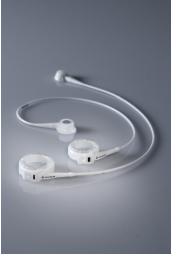The FDA Approves Use Of The LAP-BAND In Less Obese Individuals
Following an FDA advisory committee’s recommendation last December (see New Now Next in diaTribe #28), the FDA announced earlier this month that it has approved the use of the LAP-BAND weight-loss device in individuals with significantly lower body-mass indexes (BMI) than previously allowed. As a reminder, BMI is a measure of obesity – the higher the BMI, the heavier the person. If a person has a BMI of over 30 kilograms per meter squared (kg/m2) , he or she is defined as obese. While the LAP-BAND was previously approved for use in people with a BMI of at least 40 kg/m2 or those with a BMI of at least 35 kg/m2 who have one or more “serious comorbid conditions” (e.g., type 2 diabetes, high blood pressure, heart disease), the LAP-BAND can now be used by people with a BMI as low as 30 kg/m2, as long as they have at least one obesity-related comorbidity and have failed more conservative weight-loss alternatives, such as diet, exercise, and the oral weight-loss medications Xenical or alli. For obese people with diabetes, this makes it much easier to use the LAP-BAND, assuming their healthcare team supports them. In the trial used to support this recent approval, participants using the LAP-BAND (who began the trial with an average BMI of 35 kg/m2 and weight of 215 pounds) lost on average – after one year – an impressive 18% of their body weight and 64.5% of their excess body weight (weight above an “ideal” BMI of 23 kg/m2). Strikingly, at the one-year mark, 65% were no longer obese (BMI <30 kg/m2) after the procedure. Although these results are encouraging, we note that with many weight-loss therapies, the amount of weight loss sustained declines over time. Thus, we look forward to hearing updates on the trial, which will track the safety and efficacy of the LAP-BAND over a five-year period. In light of the FDA’s recent decisions not to approve several new diabetes and obesity drugs (including Bydureon, Linjeta, Afrezza, Qnexa, Contrave, and Lorqess), this approval is a rare regulatory victory. –BK








